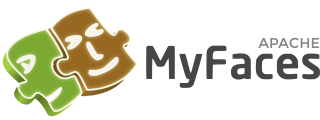Jakarta Enterprise Beans is one of several Java APIs for modular construction of enterprise software. EJB is a server-side software component that encapsulates business logic of an application. An EJB web container provides a runtime environment for web related software components, including computer security, Java servlet lifecycle management, transaction processing, and other web services. The EJB specification is a subset of the Java EE specification.
The Jakarta Transactions, one of the Jakarta EE APIs, enables distributed transactions to be done across multiple X/Open XA resources in a Java environment. JTA was a specification developed under the Java Community Process as JSR 907. JTA provides for:
The Jakarta Messaging API is a Java application programming interface (API) for message-oriented middleware. It provides generic messaging models, able to handle the producer–consumer problem, that can be used to facilitate the sending and receiving of messages between software systems. Jakarta Messaging is a part of Jakarta EE and was originally defined by a specification developed at Sun Microsystems before being guided by the Java Community Process.

Jakarta EE, formerly Java Platform, Enterprise Edition and Java 2 Platform, Enterprise Edition (J2EE), is a set of specifications, extending Java SE with specifications for enterprise features such as distributed computing and web services. Jakarta EE applications are run on reference runtimes, that can be microservices or application servers, which handle transactions, security, scalability, concurrency and management of the components it is deploying.

Apache Tomcat is a free and open-source implementation of the Jakarta Servlet, Jakarta Expression Language, and WebSocket technologies. Tomcat provides a "pure Java" HTTP web server environment in which Java code can run.

NetBeans is an integrated development environment (IDE) for Java. NetBeans allows applications to be developed from a set of modular software components called modules. NetBeans runs on Windows, macOS, Linux and Solaris. In addition to Java development, it has extensions for other languages like PHP, C, C++, HTML5, and JavaScript. Applications based on NetBeans, including the NetBeans IDE, can be extended by third party developers.
Java Management Extensions (JMX) is a Java technology that supplies tools for managing and monitoring applications, system objects, devices and service-oriented networks. Those resources are represented by objects called MBeans. In the API, classes can be dynamically loaded and instantiated. Managing and monitoring applications can be designed and developed using the Java Dynamic Management Kit.
Web Services for Remote Portlets (WSRP) is an OASIS-approved network protocol standard designed for communications with remote portlets.
BeanShell is a small, free, embeddable Java source interpreter with object scripting language features, written in Java. It runs in the Java Runtime Environment (JRE), dynamically executes standard Java syntax and extends it with common scripting conveniences such as loose types, commands, and method closures, like those in Perl and JavaScript.

Apache Geronimo is an open source application server developed by the Apache Software Foundation and distributed under the Apache license.
The Java Portlet Specification defines a contract between the portlet container and portlets and provides a convenient programming model for Java portlet developers.

GlassFish is an open-source Jakarta EE platform application server project started by Sun Microsystems, then sponsored by Oracle Corporation, and now living at the Eclipse Foundation and supported by Payara, Oracle and Red Hat. The supported version under Oracle was called Oracle GlassFish Server. GlassFish is free software and was initially dual-licensed under two free software licences: the Common Development and Distribution License (CDDL) and the GNU General Public License (GPL) with the Classpath exception. After having been transferred to Eclipse, GlassFish remained dual-licensed, but the CDDL license was replaced by the Eclipse Public License (EPL).

Apache MyFaces is an Apache Software Foundation project that creates and maintains an open-source JavaServer Faces implementation, along with several libraries of JSF components that can be deployed on the core implementation. The project is divided into several sub-projects:
Jakarta Persistence is a Jakarta EE application programming interface specification that describes the management of relational data in enterprise Java applications.
OpenJPA is an open source implementation of the Java Persistence API specification. It is an object-relational mapping (ORM) solution for the Java language, which simplifies storing objects in databases. It is open-source software distributed under the Apache License 2.0.
The Jakarta Expression Language is a special purpose programming language mostly used in Jakarta EE web applications for embedding and evaluating expressions in web pages. The specification writers and expert groups of the Java EE web-tier technologies have worked on a unified expression language which was first included in the JSP 2.1 specification (JSR-245), and later specified by itself in JSR-341, part of Java EE 7.
Jakarta RESTful Web Services, is a Jakarta EE API specification that provides support in creating web services according to the Representational State Transfer (REST) architectural pattern. JAX-RS uses annotations, introduced in Java SE 5, to simplify the development and deployment of web service clients and endpoints.
Bean Validation defines a metadata model and API for JavaBean validation. The metadata source is annotations, with the ability to override and extend the meta-data through the use of XML validation descriptors.

Apache TomEE is the Java Enterprise Edition of Apache Tomcat that combines several Java enterprise projects including Apache OpenEJB, Apache OpenWebBeans, Apache OpenJPA, Apache MyFaces and others. In October 2011, the project obtained certification by Oracle Corporation as a compatible implementation of the Java EE 6 Web Profile.







